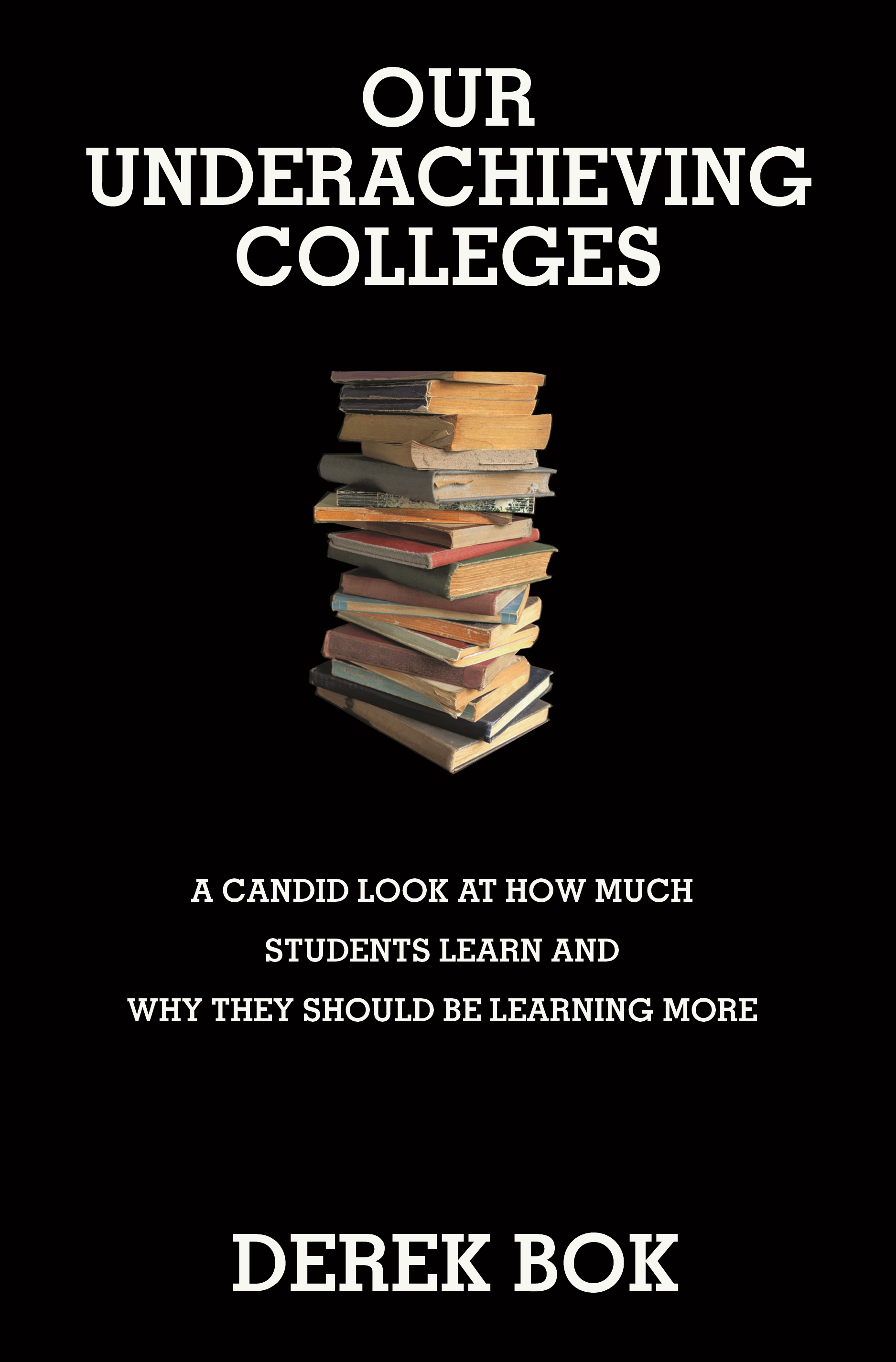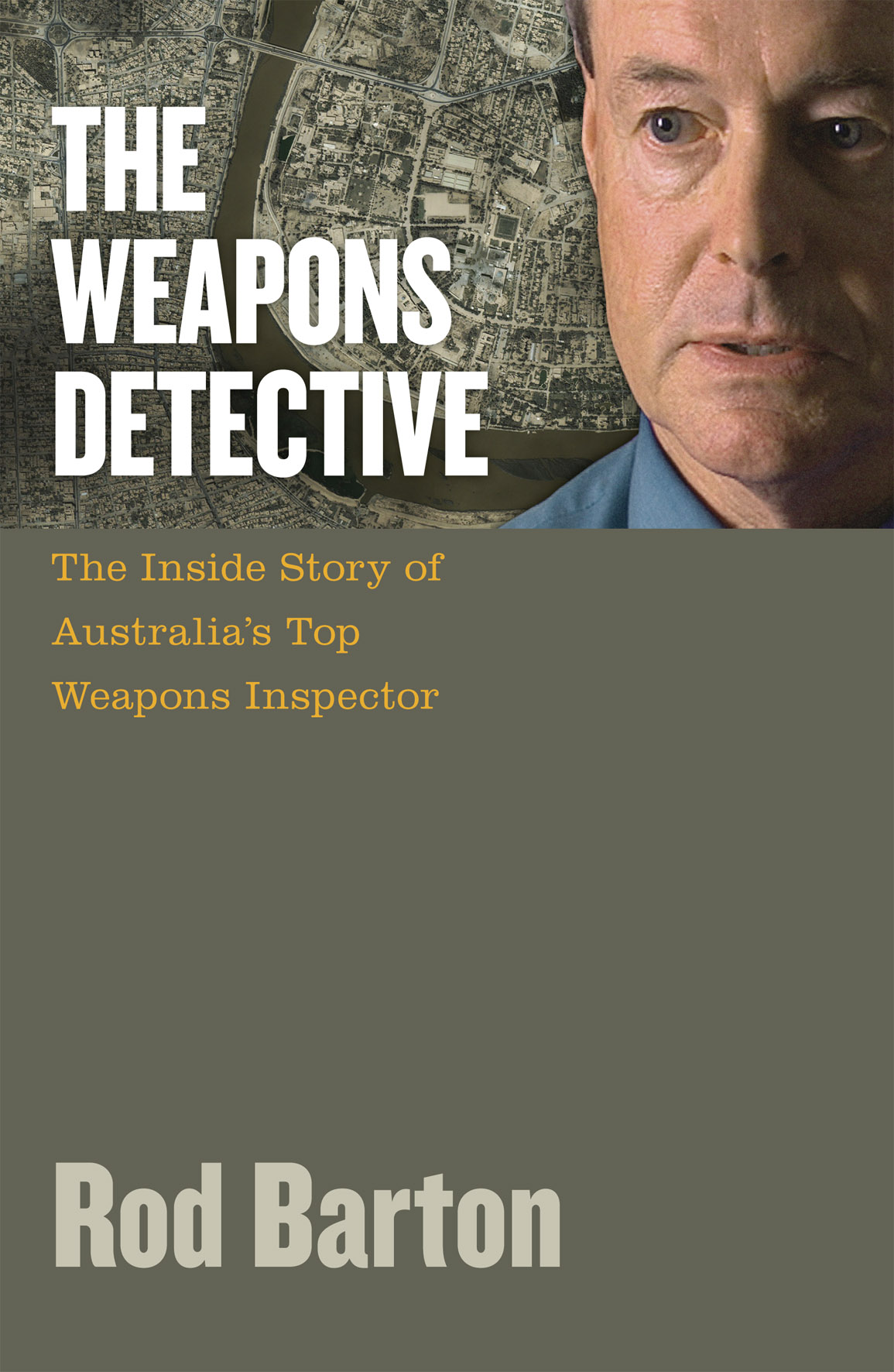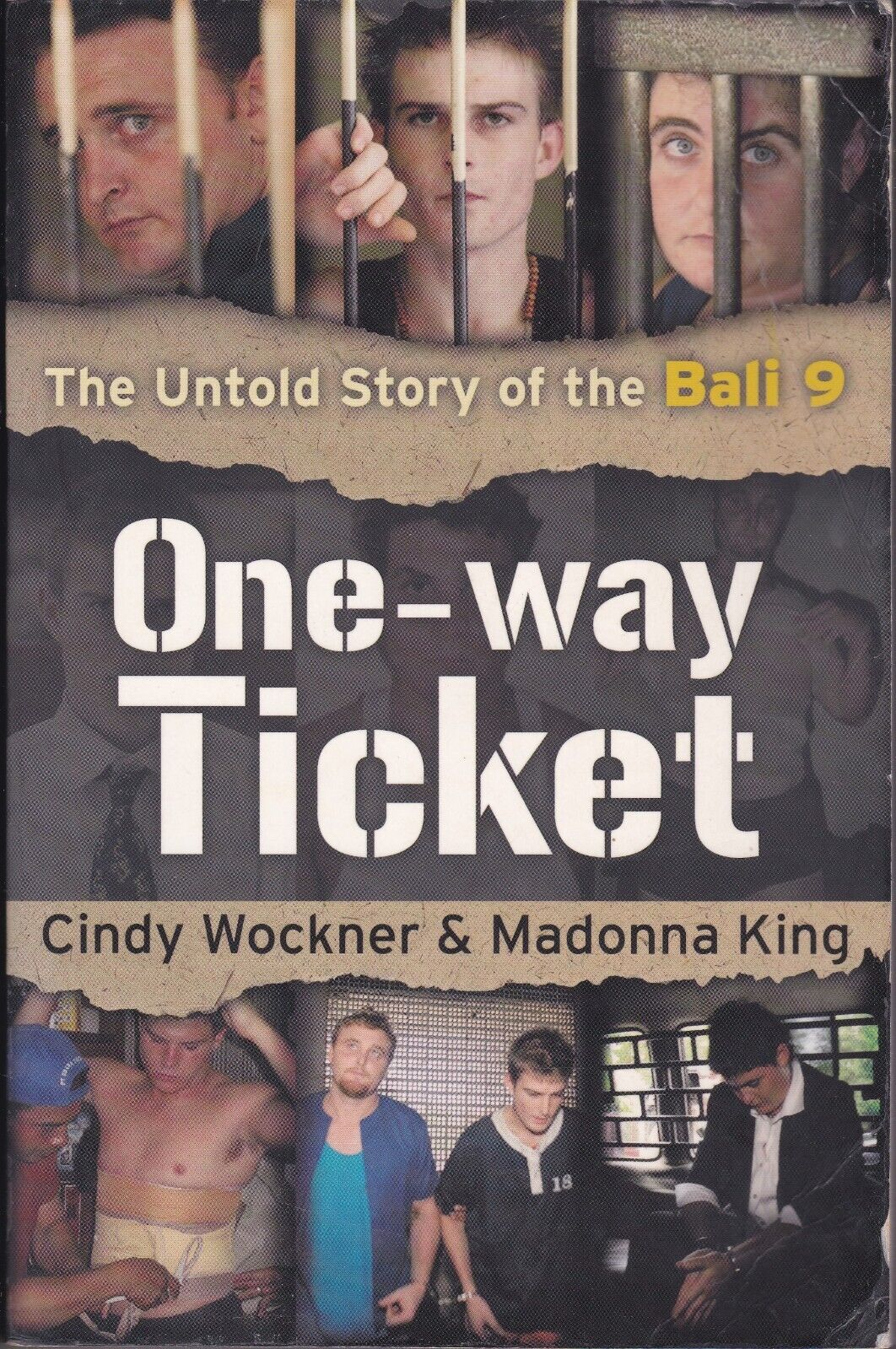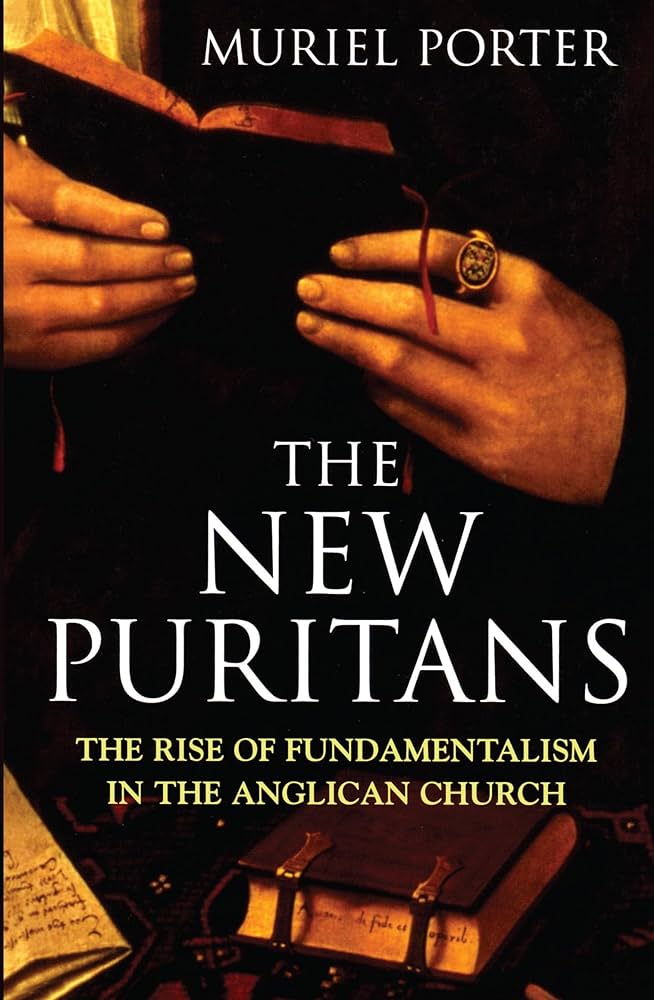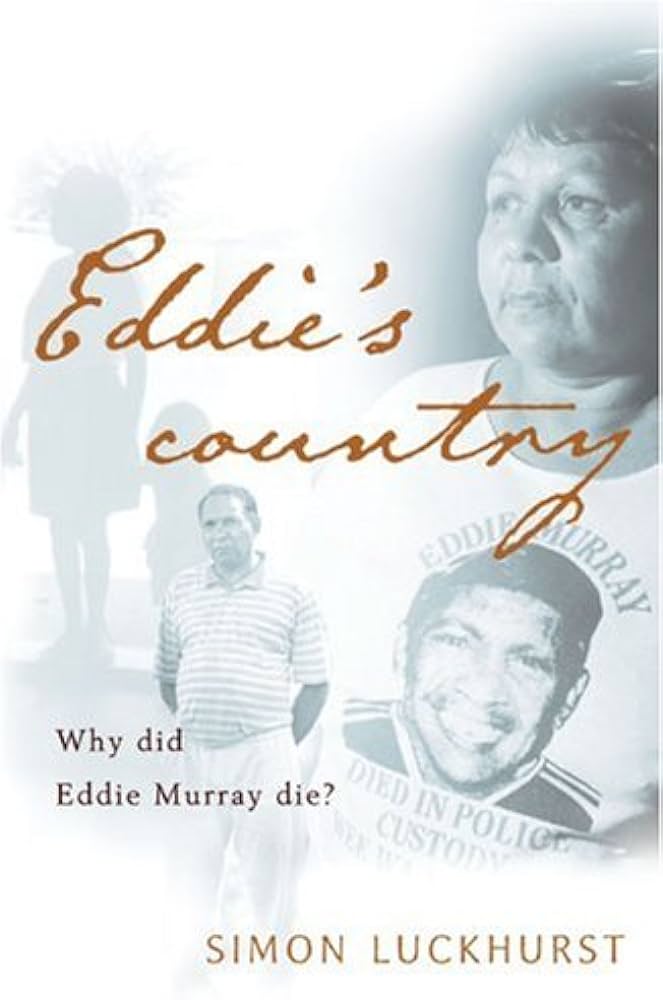Non Fiction
Our Underachieving Colleges: A candid look at how much students learn and why they should be learning more by Glyn Davis
On a cold, grey day in February this year, economist Larry H. Summers announced his resignation as president of Harvard. Though some undergraduates gathered in Harvard Yard to wave signs saying ‘Stay Summers Stay’, the rift with faculty and the governing board proved too much. Summers issued a dignified letter to the Harvard community, shook hands with well-wishers, and disappeared.
... (read more)The Weapons Detective: The inside story of Australia’s top weapons inspector by Rod Barton
Early in his book, Rod Barton describes his reaction to two events that showed what kind of intelligence officer he would become. In the late 1970s he was asked by the Joint Intelligence Organisation to deter-mine the winners and losers in a nuclear exchange between the superpowers. But how, he asked, could this be done without taking into account environmental, political, medical and psychological factors? The other occasion was when Barton contradicted American military intelligence assertions that ‘yellow rain’ falling on Hmong tribesmen in Laos in the late 1970s was a Soviet-supplied chemical warfare agent. His own investigations showed it was bee droppings. Prime Minister Malcolm Fraser backed his findings despite pressure from US Secretary of State Alexander Haig to endorse the American version. Barton’s view prevailed.
... (read more)Mussolini’s Italy: Life under the dictatorship 1915–1945 by Richard Bosworth
One thing is certain: Mussolini would not like this book. Indeed, it is exactly the sort of writing that would rouse Il Duce’s ire. In the last disintegrating days before his ignominious end, when Mussolini realised that his erstwhile allies, the Germans, had outmanoeuvred him, that members of his inner circle were frantically making arrangements to flee Italy, and that partisan uprisings had set Lombardy and the Po Valley alight, the archbishop of Milan offered what was supposed to be a soothing observation: that Il Duce should take heart that he would be remembered by history. Enraged by this assurance, Mussolini declared: ‘History, don’t talk to me of history. I only believe in ancient history, in that which is written without passion and long afterwards.’
... (read more)One Way Ticket: The untold story of the Bali nine by Cindy Wockner and Madonna King
When it was reported in 2005 that nine Australians had been arrested in Bali on charges of trafficking heroin, the public response was scornful and incredulous. In the wake of the media saturation of Schapelle Corby’s trial, such blatant attempts to flout the severe drug laws of Indonesia, with quick cash the only apparent incentive, seemed incomprehensible. As the story filtered through the press, a division appeared in ‘The Bali Nine’, as they were swiftly dubbed, between the mules – Martin Stephens, Renae Lawrence, Scott Rush and Michael Czugaj – who were apprehended with more than eight kilograms of heroin strapped to their bodies, and other members of the group, most of whom had not left the country before. These were Andrew Chan and Myuran Sukumaran, identified as the ringleaders of the operation, and Matthew Norman, Si Yi Chen and Tan Duc Thanh Nguyen, who were arrested in their hotel room with more than 300 grams of heroin. The mules claimed that Chan and Sukumaran had made repeated threats against their families should they not co-operate; and that they and Matthew Norman were innocent victims of an international drug-trafficking ring.
... (read more)Packer’s Lunch: A rollicking tale of Swiss bank accounts and money-making adventures in the roaring 90s by Neil Chenoweth
One of the three central protagonists of Neil Chenoweth’s book, Graham Richardson, famously titled his autobiography Whatever It Takes (1994). Despite the title’s hints at candour, Richardson’s book eluded all but the most passing references to Kerry Packer. As Chenoweth points out in his alarming new book, this, from the man John Button had dubbed the Minister for Kerry Packer, represented storytelling at its most elliptical. More than Richardson’s book, Chenoweth presents the tale of Whatever it Took. It is not an edifying spectacle.
... (read more)The New Puritans: The rise of fundamentalism in the Sydney Anglican Church by Muriel Porter
A couple of years ago I attended the patronal festival at St James’, King Street, Sydney. The preacher was the Dean of Newcastle, who, after the blessing, opened with ‘Greetings from across the Chasuble Belt!’ The large congregation erupted into laughter, then settled in for twelve minutes of civil gospel. This is because Sydney Diocese, alone in the Anglican Communion, requires its clergy to sign an understanding that they will not wear Eucharistic vestments, including the chasuble. The ban is but one outward and visible control mechanism of an inward and enclosed evangelical attitude that typifies the power play within the diocese.
... (read more)Global Matrix: Nationalism, globalism and state-terrorism by Tom Nairn and Paul James
Books on globalisation abound, to the point that it has become difficult to say anything new about the issues at stake. But despite this challenge, Tom Nairn and Paul James manage to add substance to the debate. They do so by rethinking the relationship between nationalism and globalisation. The defining feature of this engagement is the authors’ attempt to circumvent what they believe is a very polarised debate.
... (read more)Hayek’s Challenge: An intellectual biography of F.A. Hayek by Bruce Caldwell
On February 19 this year, Francis Fukuyama jumped ship. In the course of an essay in the New York Times on the failings of the American strategy to ‘democratise’ the Middle East, he declared that, ‘I have numerous affiliations with different strands of the neo-conservative movement’, but ‘neo-conservatism, both a political symbol and a body of thought, has evolved into something I can no longer support’. The neo-conservative project, he stated, has become self-contradictory. Though the Bush administration retains an evolutionistic scepticism about the limits of social engineering in domestic matters, it feels no such restraint in foreign policy, where its faith in the transformational uses of American power and in the exceptionalism of American virtue has overcome traditional doubts about the malleability of humanity.
... (read more)Eddie’s Country: Why did Eddie Murray die? by Simon Luckhurst
It is painful to read Eddie’s Country, a book that takes the reader beyond the formality, the statistics and the mind-numbing complexity of the Australian Royal Commission into Aboriginal Deaths in Custody held between 1987 and 1990. Instead, we are called to bear witness to the frustration and grief endured by one family as it sought answers to questions arising from the unexpected death, in police custody, of Eddie Murray.
... (read more)Return to Gallipoli: Walking the battlefields of the great war by Bruce Scates
Why does ANZAC day seem more popular now than forty years ago? Despite the thinning ranks of veterans, attendances at dawn services in most capital cities are up, crowds at the marches are large and enthusiastic, numerous historians and former members of the armed services seem to be running profitable battle-field tour businesses, and the desire of young Australian backpackers to include Gallipoli (particularly on Anzac Day) in their itineraries increases every year. This popularity is even more remarkable given that in the 1970s and early 1980s Anzac Day was a source of controversy and dissent: anti-war protestors, Vietnam veterans who felt excluded from the national ethos, indigenous Australians who felt their wars were overlooked and feminists determined to highlight the problem of women raped in war, all saw this national day of commemoration as an occasion to press their cause. The RSL did not respond well to these attempts to undermine the sanctity of the day. The re-emergence of Anzac Day as a site for unity and cohesion, particularly amongst younger Australians, is intriguing.
... (read more)
